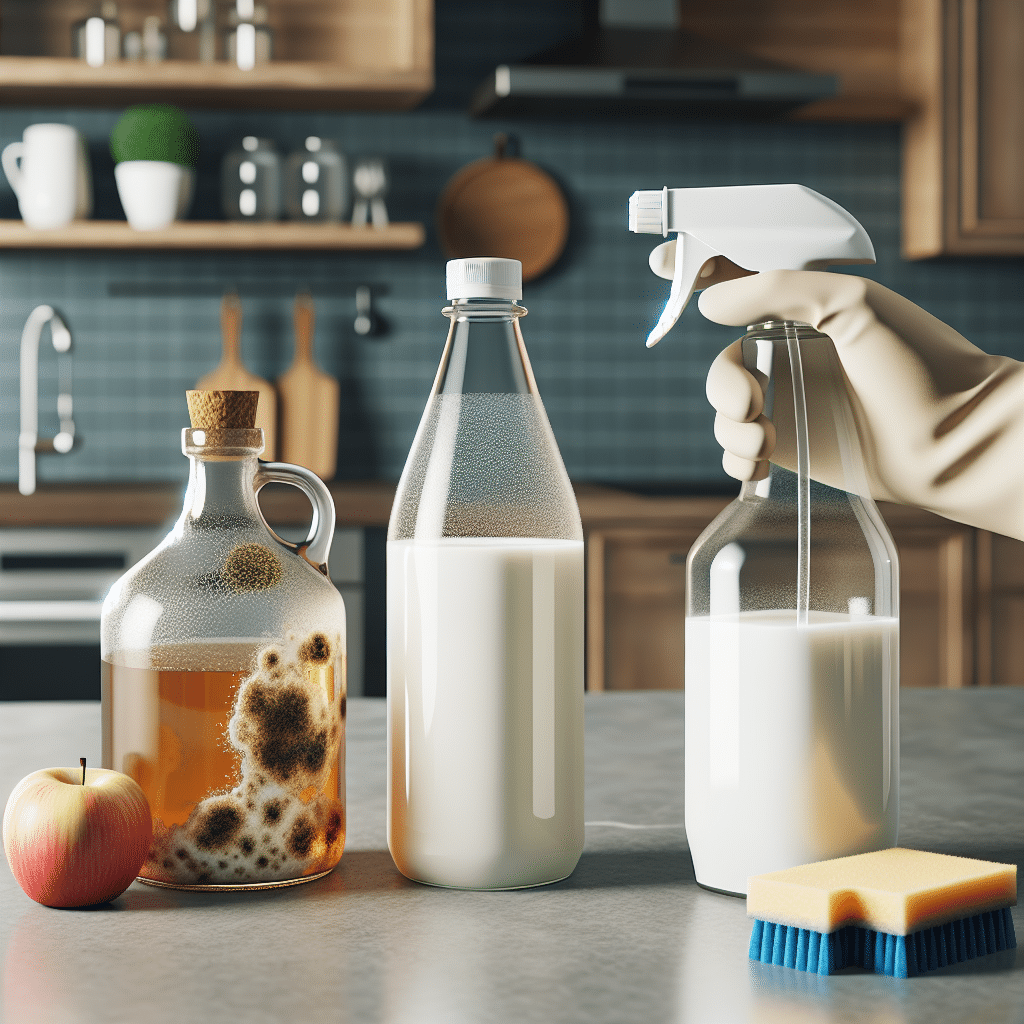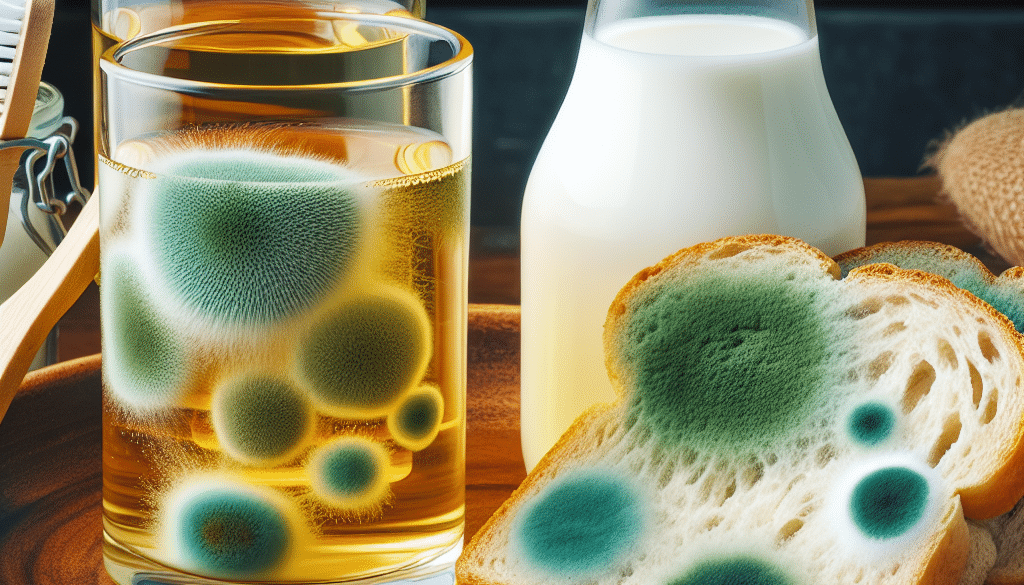Apple Cider Vinegar and Milk for Mold Removal
-
Table of Contents
- Apple Cider Vinegar and Milk for Mold Removal: Natural Solutions
- Understanding Mold and Its Risks
- The Power of Apple Cider Vinegar Against Mold
- Milk: An Unconventional Mold Remedy
- Case Studies and Examples
- Pros and Cons of Using ACV and Milk for Mold Removal
- Preventive Measures to Keep Mold at Bay
- Conclusion: Natural Mold Removal with ACV and Milk
- Explore ETChem’s Protein Products
Apple Cider Vinegar and Milk for Mold Removal: Natural Solutions

Mold is a common issue in many households, causing not only unsightly spots but also potential health risks. Traditional mold removal methods often involve harsh chemicals that can be harmful to both the environment and our health. As a result, many homeowners are turning to natural alternatives like apple cider vinegar and milk. This article explores the effectiveness of these natural solutions for mold removal, backed by research and practical examples.
Understanding Mold and Its Risks
Mold is a type of fungus that thrives in moist environments. It reproduces by releasing spores that can spread through the air and settle on surfaces. Mold exposure can lead to various health issues, including allergies, respiratory problems, and in severe cases, toxic reactions due to mycotoxins.
The Power of Apple Cider Vinegar Against Mold
Apple cider vinegar (ACV) is known for its antifungal and antibacterial properties, making it an effective agent against mold. The acetic acid in ACV can kill mold and prevent its growth. Here’s how to use it:
- Direct Application: Apply undiluted ACV to the affected area and let it sit for an hour before wiping clean.
- Preventative Spray: Mix equal parts water and ACV in a spray bottle and use it regularly on prone areas to prevent mold growth.
Studies have shown that ACV can kill various types of bacteria and fungi, making it a versatile cleaning agent. However, it’s essential to test it on a small area first to ensure it doesn’t damage the surface.
Milk: An Unconventional Mold Remedy
Milk might seem like an unlikely candidate for mold removal, but it has been used for centuries to treat powdery mildew on plants. The lactic acid in milk can act as a mild disinfectant and is believed to interfere with the mold’s metabolism. Here’s how to apply milk for mold removal:
- Milk Solution: Mix one part milk with one part water and apply it to the moldy surface. Allow it to dry before rinsing with water.
- Direct Application: For small areas, apply full-strength milk and let it sit for a few hours before cleaning.
While there is less scientific research on milk’s effectiveness against household mold, anecdotal evidence suggests it can be a useful natural alternative.
Case Studies and Examples
Several case studies have highlighted the success of using natural remedies like ACV and milk for mold removal. For instance, a study published in the “Journal of Environmental Health” found that vinegar could reduce mold on hard surfaces. Additionally, anecdotal reports from homeowners have supported the use of milk, especially on leather goods and plants.
Pros and Cons of Using ACV and Milk for Mold Removal
Before choosing these natural solutions, it’s essential to weigh their advantages and disadvantages:
- Pros:
- Eco-friendly and non-toxic
- Readily available and cost-effective
- Safe for use around children and pets
- Cons:
- May not be as effective on all types of mold or surfaces
- Potential for dairy odors when using milk
- May require repeated applications for stubborn mold
Preventive Measures to Keep Mold at Bay
Prevention is key when it comes to mold. Here are some tips to reduce the risk of mold growth in your home:
- Keep humidity levels low, ideally between 30-50%.
- Ensure proper ventilation in bathrooms, kitchens, and laundry areas.
- Fix leaks and address water damage promptly.
- Clean and dry any wet surfaces within 24-48 hours to prevent mold growth.
Conclusion: Natural Mold Removal with ACV and Milk
Apple cider vinegar and milk offer natural and eco-friendly alternatives for mold removal. While they may not replace commercial mold removers in all situations, they provide a safer option for those looking to avoid harsh chemicals. With proper application and preventive measures, you can maintain a mold-free environment using these traditional remedies.
Explore ETChem’s Protein Products
If you’re interested in health and wellness, consider exploring ETChem’s range of protein products. Their high-quality collagens can be a valuable addition to your dietary supplements, supporting various aspects of health, including skin, joint, and bone health.
About ETChem:
ETChem, a reputable Chinese Collagen factory manufacturer and supplier, is renowned for producing, stocking, exporting, and delivering the highest quality collagens. They include marine collagen, fish collagen, bovine collagen, chicken collagen, type I collagen, type II collagen and type III collagen etc. Their offerings, characterized by a neutral taste, instant solubility attributes, cater to a diverse range of industries. They serve nutraceutical, pharmaceutical, cosmeceutical, veterinary, as well as food and beverage finished product distributors, traders, and manufacturers across Europe, USA, Canada, Australia, Thailand, Japan, Korea, Brazil, and Chile, among others.
ETChem specialization includes exporting and delivering tailor-made collagen powder and finished collagen nutritional supplements. Their extensive product range covers sectors like Food and Beverage, Sports Nutrition, Weight Management, Dietary Supplements, Health and Wellness Products, ensuring comprehensive solutions to meet all your protein needs.
As a trusted company by leading global food and beverage brands and Fortune 500 companies, ETChem reinforces China’s reputation in the global arena. For more information or to sample their products, please contact them and email karen(at)et-chem.com today.




